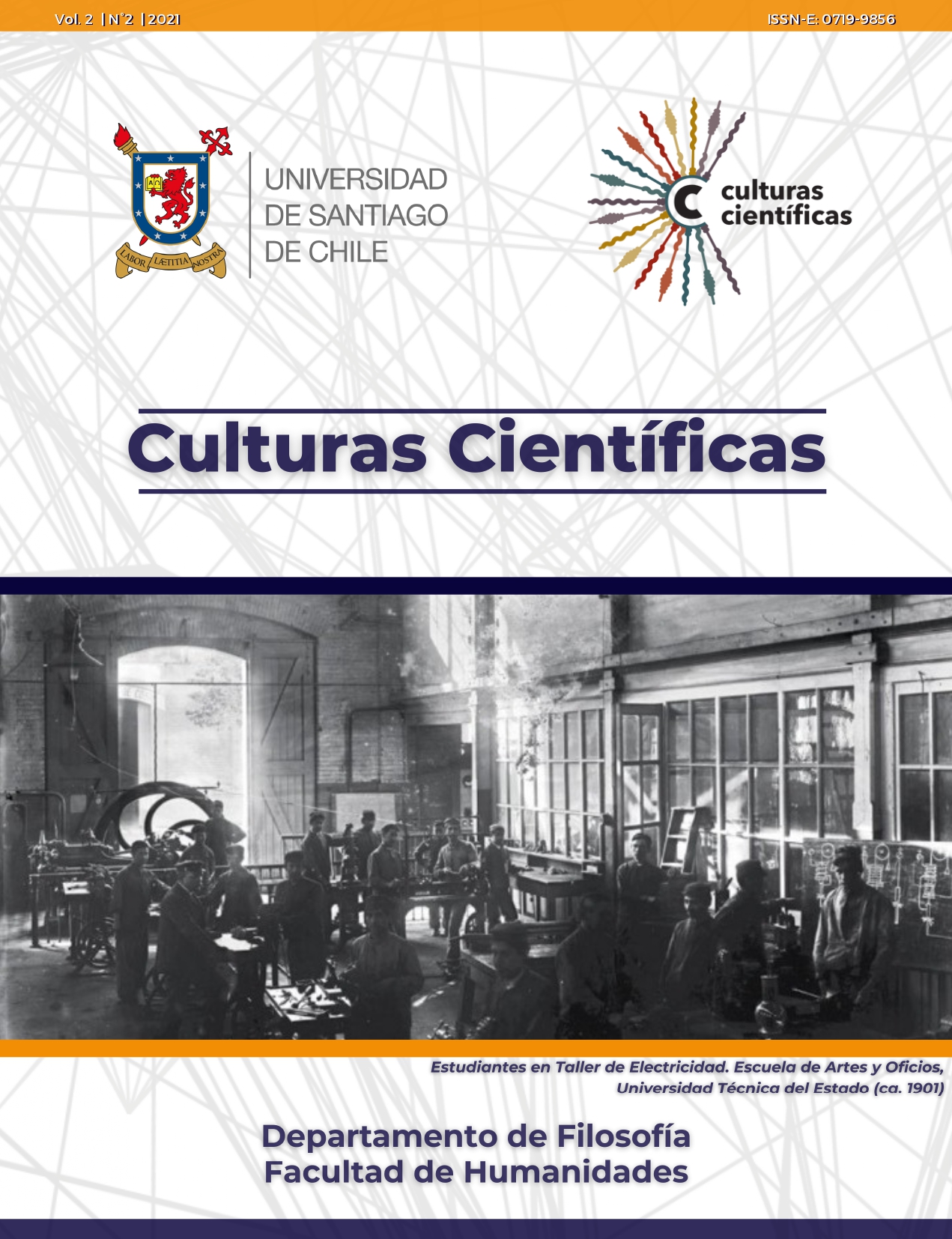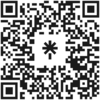The «Situated Mathematics» as a Proposal of Epistemic Reflection in a Social-historical Key on Mathematical Practice
The Case of Ancient Egypt
DOI:
https://doi.org/10.35588/cc.v2i2.5100Keywords:
Philosophy of mathematics, Anti-relativism, Situated mathematics, Strangeness of the past, Egyptian mathematicsAbstract
This research has, as a general purpose, to assume a philosophical position in a social-historical and anti-relativist key to analyse the development of a particular concrete historical case: the mathematics of ancient Egypt. For this, certain philosophical positions related to quasi-empiricism in mathematics will be discussed and criticized, which, being relativistic, will allow us to delineate in contrast our own position: the existence of a «situated mathematics». This philosophical category will have as theoretical support the notion of situated knowledge(s). In addition, its implications are, as we argue, both philosophical and historiographical, since it will serve to analyse the characteristics of the corpus of Egyptian mathematical problems recorded in the various mathematical papyri. We will refer to Egyptian linguistic expressions to denote the various arithmetic operations and the algorithmic character of the problems, as well as the epistemological question of empiricism and how the situated perspective allows us to overcome the dichotomy between a pure and an applied mathematics, which we consider is not ubiquitous to address the interpretation of the mathematical practice of the ancient Nile country.
Downloads
References
Alvargonzález, D. (2013). “Is the History of Science Essentially Whiggish?”. History of Science, 51(1): 85-99. doi: https://doi.org/gf5g48
Barnes, B. (1977). Interests and the Growth of Knowledge. London: Routledge and Kegan Paul. Bell, E. (1949). Historia de las matemáticas. México: Fondo de Cultura Económica.
Bishop, A. (1999). Enculturación matemática. Las matemáticas desde una perspectiva cultural. Barcelona: Paidós.
Blåsjö, V. (2014). “A Critique of the Modern Consensus in the Historiography of Mathematics”. Journal of Humanistic Mathematics, 4(2): 113-123. doi: https://doi.org/g8b9 Bloor, D. (1998). Conocimiento e imaginario social. Barcelona: Gedisa.
Boido, G. y Flichman, E. (2003). “Categorías historiográficas y biografías científicas: ¿Una tensión inevitable?”. En L. Benítez, Z. Monroy y A. Robles (eds.), Filosofía natural y filosofía moral en la Modernidad (pp. 37-50). México: Facultad de Psicología, Universidad Nacional Autónoma de México.
Boyer, C. (2011). The History of Mathematics (3rd Edition). New Jersey: John Wiley & Sons, Inc. Buldt, B., Löwe, B. y Müller, Th. (2008). “Towards a New Epistemology of Mathematics”. Erkenntnis, 68(3): 309-329. doi: https://doi.org/c75w78
Burke, P. (2017). ¿Qué es la historia del conocimiento? Cómo la información dispersa se ha convertido en saber consolidado a lo largo de la historia. México: Siglo Veintiuno Editores.
Burton, L. (1995). “Moving Towards a Feminist Epistemology of Mathematics”. En H. Forgasz y
F. Rivera (eds.), Towards Equity in Mathematics Education: Gender, Culture and Diversity (pp. 15-29). Berlin, Heidelberg: Springer Verlag.
Cajori, F. (1991). A History of Mathematics (5th Edition). Providence, Rhode Island: American Mathematical Society Chelsea Publishing.
Cañón, C. (1993). La Matemática: creación y descubrimiento. Madrid: UPCO.
Chandlee, S. (2017). “Ancient Egyptian Mathematics: Re-examining Problems Nos. 49-52 of the Rhind Mathematical Papyrus (c. 1575 – 1540 BCE)”. Eras Journal, 19(1): 51-78.
Chevallard, Y. (1990). “On Mathematics Education and Culture: Critical Afterthoughts”. Educational Studies in Mathematics, 21(1): 3-27. doi: https://doi.org/10.1007/BF00311013
Cooper, L. (2011). “Did Egyptian Scribes Have an Algorithm mean for Determining the Circumference of a Circle?” Historia Mathematica, 38(4): 455-484. doi: https://doi.org/d2gdf9
D’Ambrosio, U. (2012). “Matemática na transição das disciplinas para a transdisciplinariedade”. En
C. Celestino Silva y L. Salvático (eds.), Filosofía e História da Ciencia no Cone Sul: Seleção de Trabalhos da AFHIC (pp. 565-571). Porto Alegre: Entrementes Editorial.
Davis, Ph. y Hersh, R. (1980). The Mathematical Experience. Basel: Birkhäuser.
De Faria, E. (2008). “Creencias y Matemáticas”. Cuadernos de Investigación y Formación en Educación Matemática, 3(4): 9-27.
Epple, M., Hoff Kjeldsen, T. y Siegmund-Schultze, R. (2013). “From ‘Mixed’ to ‘Applied’ Mathematics: Tracing an Important Dimension of Mathematics and its History”. Oberwolfach Reports, 10(1): 657-773. doi: https://doi.org/g83v
Ernest, P. (1991). The Philosophy of Mathematics Education. Hampshire: The Falmer Press. Ernest, P. (1998). Social Constructivism as a Philosophy of Mathematics. Albany, New York: State University of New York Press.
Ernest, P. (1999). “Is Mathematics Discovered or Invented?” Philosophy of Mathematics Education Journal 12.
Faulkner, R. (1976). Diccionario conciso de egipcio medio. Valencia: Ediciones Lepsius. Feyerabend, P. (1989). Contra el método. Esquema de una teoría anarquista del conocimiento. Barcelona: Ariel.
Fried, M. (2014). “The Discipline of History and the «Moderns Consensus in the Historiography of Mathematics»”. Journal of Humanistic Mathematics, 4(2): 124-136. doi: https://doi.org/g8cb
Fried, M. (2018). “Ways of Relating to the Mathematics of the Past”. Journal of Humanistic Mathematics 8(1): 2-23. doi: https://doi.org/g8cc
Gerván, H. H. (2015). “La práctica matemática en el antiguo Egipto. Una relectura del Problema 10 del Papiro Matemático de Moscú”. Anuario de la Escuela de Historia Virtual, 7: 1-17.
Gerván, H. H. (2019). “¿Geometría o agrimensura? Defendiendo la existencia de un conocimiento geométrico en el antiguo Egipto a partir del Papiro Rhind” (ponencia inédita) en XX Jornadas Rolando Chuaqui Kettlun Filosofía y Ciencias: Libro de resúmenes (pp. 108-109). url: https://www.academia.edu/44871185/Libro_de_res%C3%BAmenes_JRCK_2019_PontificiaUniversidad_Cat%C3%B3lica_de_Chile_Santiago_
Gerván, H. H. (2020). “Representación y diagramas en la producción escrita de la matemática egipcia”. En M. O’Lery, L. Federico e Y. Ariza (eds.), Filosofía e Historia de la Ciencia en el Cono Sur: selección de trabajos del XI Encuentro (pp. 361-374). Buenos Aires, São Carlos: Asociación de Filosofía e Historia de la Ciencia del Cono Sur.
Grattan-Guinness, I. (1990). “Does History of Science Treat of the History of Science? The Case of Mathematics”. History of Science 28(2): 149-173. doi: https://doi.org/g8jm
Halpern, D., Benbow, C., Geary, D., Gur, R., Hyde, J. y Gernsbacher, M. (2007). “The Science of Sex Differences in Science and Mathematics”. Psychological Science in Public Interest 8(1): 1-51. doi: https://doi.org/cspb97
Haraway, D. (1988). “Situated Knowledges: The Science Question in Feminism and the Privilege of Partial Perspective”. Feminist Studies 14(3): 575-599. doi: https://doi.org/bvtwq4
Hartman, D. y Lange, R. (2000). “Epistemology Culturalized”. Journal for General Philosophy of Science 31(1): 75-107. doi: https://doi.org/fps7sp
Hersh, R. (1997). What is Mathematics, really? Oxford: Oxford University Press.
Hersh, R. y John-Steiner, V. (2012). Matemáticas: una historia de amor y odio. Ciudad Autónoma de Buenos Aires: Crítica.
Imhausen, A. (2002). “The Algorithmic Structure of the Egyptian Mathematical Problem Texts”. En J. Steele y A. Imhausen (eds.), Under One Sky. Astronomy and Mathematics in the Ancient Near East (pp. 147-166). Münster: Ugarit Verlag.
Imhausen, A. (2003). Ägyptische Algorithmen. Eine Untersuchung zu den mittelägyptischen mathematischen Aufgabentexten (ÄA 65). Wiesbaden: Harrassowitz Verlag.
Imhausen, A. (2006). “Ancient Egyptian Mathematics: New Perspectives on Old Sources”. The Mathematical Intelligencer 28(1): 19-27. doi: https://doi.org/cxc4v8
Imhausen, A. (2016). Mathematics in Ancient Egypt. A Contextual History. Princeton, Oxford: Princeton University Press.
Jiménez-Pozo, M. (2010). “Matemática: ¿invención o descubrimiento?” Elementos: Ciencia y cultura 17(77): 25-32.
Kalmanovitz, S. (2004). “La cliometría y la historia económica institucional: reflejos latinoamericanos”. Historia Crítica, (27). url: https://www.redalyc.org/articulo.oa?id=81102705
Katary, S. (2011). “Taxation (until the End of the Third Intermediate Period)”. En J. Moreno García y W. Wendrich (eds.), UCLA Encyclopedia of Egyptology, Los Angeles. Consulta 8 agosto 2021. Url: http://digital2.library.ucla.edu/viewItem.do?ark=21198/zz002814vq>
Kemp, B. (2006). 100 jeroglíficos. Introducción al mundo del antiguo Egipto. Barcelona: Crítica. Kitcher, Ph. (1983). The Nature of Mathematical Knowledge. New York, Oxford: Oxford University Press. doi: https://doi.org/bqts29
Kitcher, Ph. (1988). “Mathematical Naturalism”. En W. Aspray y Ph. Kitchen (eds.), History and Philosophy of Modern Mathematics (pp. 293-325). Minneapolis: University of Minnesota Press.
Klimovsky, G. y Boido, G. (2005). Las desventuras del conocimiento matemático. Filosofía de la matemática: una introducción. Ciudad Autónoma de Buenos Aires: a-Z Editora.
Kline, M. (1992). El pensamiento matemático de la antigüedad a nuestros días, vol. 1. Madrid: Alianza.
Knuth, D. (1972). The Art of Computer Programming, Vol. 1: Fundamental Algorithms. Reading (Mass.). New York: Addison-Wesley.
Kragh, H. (1989). Introducción a la historia de la ciencia. Barcelona: Crítica.
Lakatos, I. (1983). Escritos filosóficos, vol. 1: La metodología de los programas de investigación científica. Madrid: Alianza.
Lakatos, I. (1986). Pruebas y refutaciones: la lógica del descubrimiento matemático. Madrid: Alianza.
Lerman, S. (1989). “Constructivism, Mathematics and Mathematics Education”. Educational Studies in Mathematics 20(2): 211-223. doi: https://doi.org/ftxrqn
Maza Gómez, C. (2009). Las matemáticas en el Antiguo Egipto. Sus raíces económicas. Sevilla: Secretariado de Publicaciones de la Universidad de Sevilla.
Muszkats, J. (2019). “La Filosofía de la matemática en ingeniería. Tres preguntas orientadoras. Tecnología & Sociedad 8: 77-90.
Orozco Echeverri, S. (2016). “La extrañeza del pasado: historiografía de la ciencia e historiografía de la filosofía”. En S. Manzo y V. Waksman (eds.), ¿Por qué seguir contando historias de la filosofía? Reflexiones sobre la historia y la historiografía de la filosofía (pp. 63-79). Ciudad Autónoma de Buenos Aires: Prometeo Libros.
Otero, M. (1991). “De los fundamentos a la práctica matemática. Razones de un cambio sustancial en filosofía de la matemática”. Llull 14(27): 551-560.
Pecharromán, C. (2013). “Naturaleza de los objetos matemáticos: representación y significado”. Enseñanza de las Ciencias 31(3): 121-134.
Pérez Herranz, F. (2007). “La eliminación de la subjetividad de los fines. Platón y las matemáticas”. Eikasia. Revista de Filosofía 12, Extraordinario I: 219-252.
Piazzini Suárez, C. (2014). “Conocimientos situados y pensamientos fronterizos: una relectura desde la universidad”. Geopolítica(s) 5(1): 11-33. doi: https://doi.org/c85q
Platón (2011a). “República”. En Platón II. Diálogos (pp. 9-340). Barcelona: Editorial Gredos. Platón (201b). “Teeteto”. En Platón II. Diálogos (pp. 421-524). Barcelona: Editorial Gredos.
Restrepo, E. (2016). “Descentrando Europa: aportes de la teoría postcolonial y el giro decolonial al conocimiento situado”. Revista Latina de Sociología 6: 60-71. doi: https://doi.org/g8cd
Sadovsky, P. (2005). Enseñar matemática hoy. Miradas, sentidos, desafíos. Ciudad Autónoma de Buenos Aires: Libros del Zorzal.
Spalinger, A. (1990). “The Rhind Mathematical Papyrus as a Historical Document”. Studien zur Altägyptischen Kultur 17: 295-337.
Tymoczko, Th. (ed.) (1986). New Directions in the Philosophy of Mathematics: An Anthology. Revised and Expanded Edition. Princeton, New Jersey: Princeton University Press.
Wilder, R. (1981). Mathematics as a Cultural System. Oxford: Pergamon Press.
Zaslavsky, C. (1998). “Ethnomathematics and Multicultural Mathematics Education”. Teaching Children Mathematics 4(9): 502-503. doi: https://doi.org/g8cf
Downloads
Submitted
2021-08-08Published
Issue
Section
License
Copyright (c) 2021 Héctor Horacio Gerván

This work is licensed under a Creative Commons Attribution 4.0 International License.











